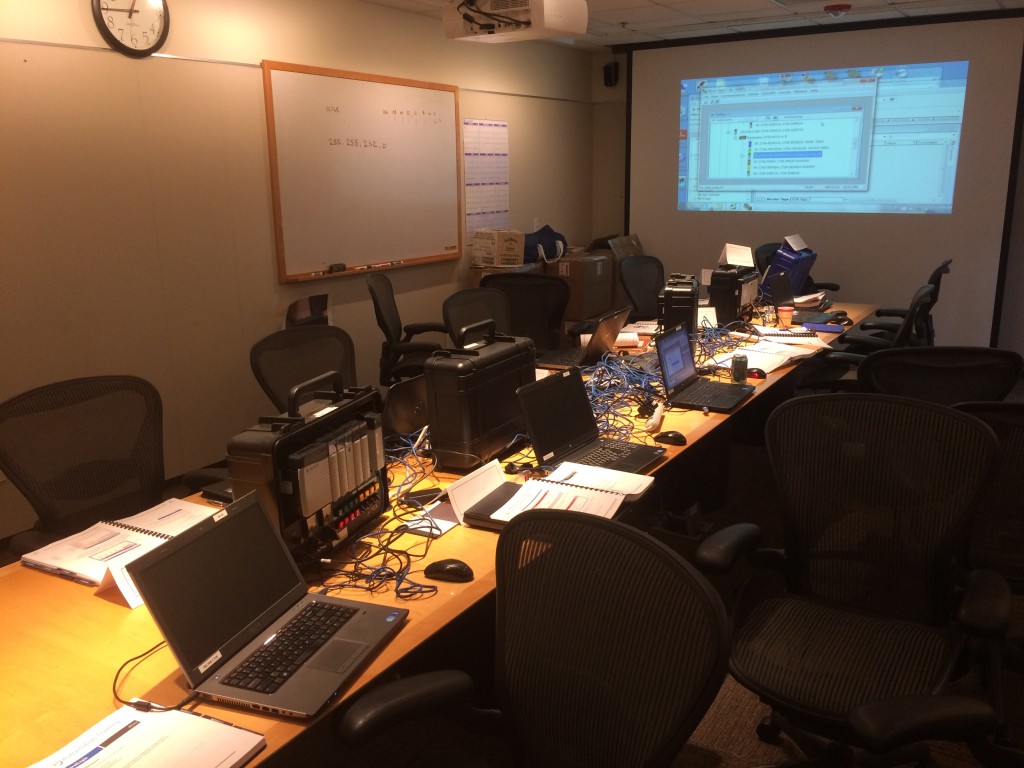Teaching and Consulting

Blue – Consulting
Four years ago I relaunched my old company, Automation Consulting Services, Inc. as Automation Consulting, LLC. For the first year or so I spent a lot of time contracting for machine builders and engineering firms, mostly writing PLC and HMI/SCADA programs and designing control systems.
One of the reasons I closed the original Automation Consulting in 2006 was that I spent more time supervising and selling than doing the technical work that I really enjoy. Over 10 years from 1996 to 2006 we had grown from a panel building and controls company into a full-fledged machine builder. While I really enjoyed most of it, I discovered I really wasn’t a manager at heart. When I went to work at Wright Industries in 2006 one of the things I really enjoyed was the sense of freedom from responsibility of meeting payroll and concentrating on the technical challenges again.
In 2012 I left Wright and went on a trip to rediscover what I really wanted to do. While I had a great time working on the big systems at Wright, I felt like I really didn’t have much flexibility as to what I was working on. This was also a problem when contracting, since once you start working on a system, you have to stay involved for the duration.
In 2013 after finishing my book I started teaching classes for Automation Training. The map at the top of this post will give you an idea of how much travel is involved in doing this; I pretty much cover the US. The map also shows that most of my time is spent teaching now.

In many ways, teaching and consulting are similar. Rather than simply covering material in a training manual, classes have to be customized for the students. Sometimes the class consists of maintenance technicians, sometimes engineers. Sometimes students are from the oil and gas industry, sometimes automotive or other manufacturing. Two weeks ago the students were teachers themselves, learning Siemens PLCs after teaching Allen-Bradley for college students. The week before that it was technicians who worked for the government. This means I really have to stay up on not only the technical material, but also on different industries and techniques. Interfacing with robots is an entirely different prospect than controlling a wastewater plant using SCADA.
Another benefit of teaching and consulting is that my time is much more flexible. Classes are a week or two at a time, and consulting jobs are also typically short. An exception was my ongoing job in Miami, but once again that was at most a week or two per month. This flexibility has allowed me to make progress on my latest project, a book on advanced PLC programming. I hope to be able to use this and my previous book in future advanced training courses.
I’d also like to take this opportunity to thank all my readers and followers for the encouragement you’ve given me over the past several years. I get a lot of nice e-mails from readers of this blog and former students, I want you all to know how much they mean to me. While I may not always answer all of them, I try to address them in this blog, especially when you have technical questions. Thank you all very much! -Frank
